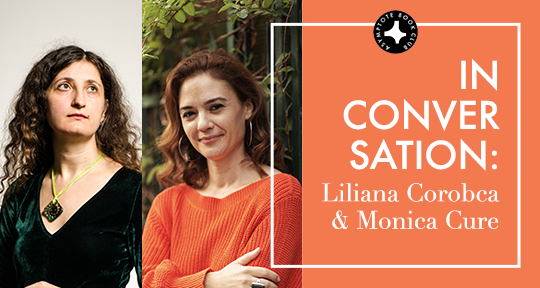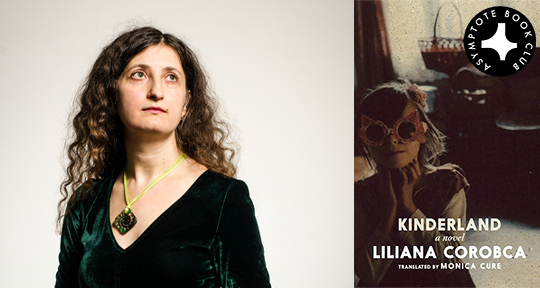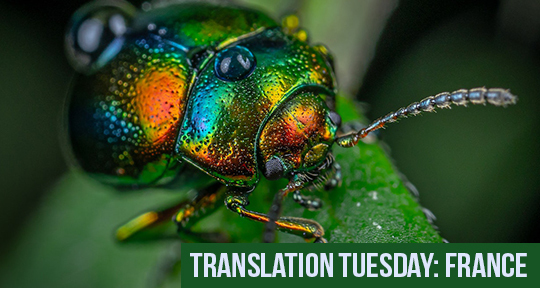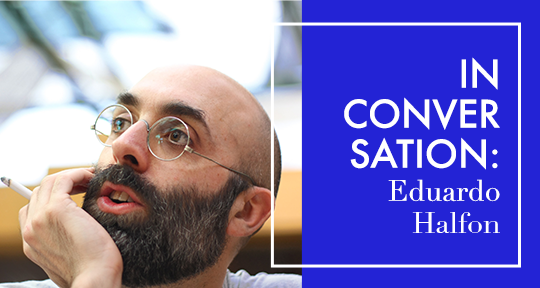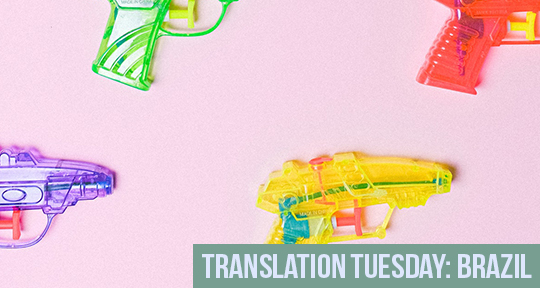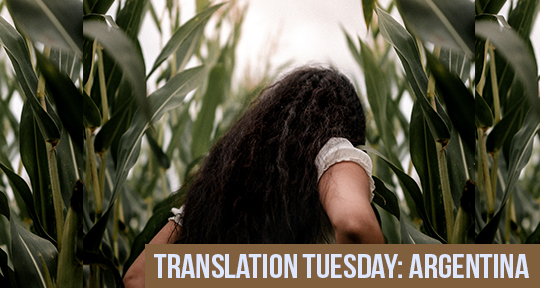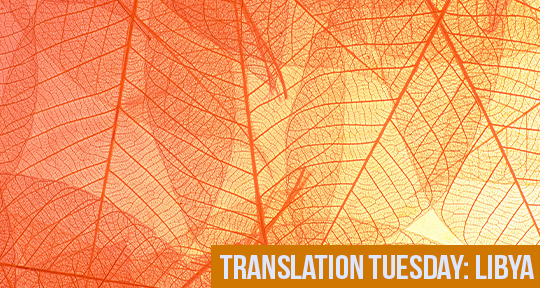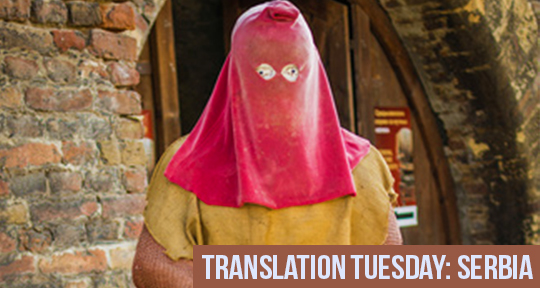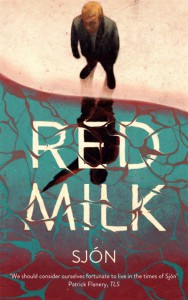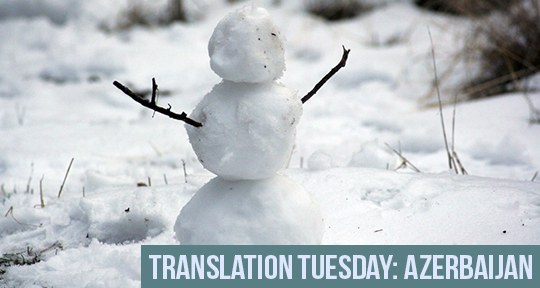Our penultimate Book Club selection for this year was Liliana Corobca’s Kinderland, an exquisitely lyrical narration of childhood amidst the instabilities of poverty, underlined by an unexpectedly penetrating look into economic migration in eastern Europe. Told in the mesmerizing voice of Cristina, whose mind slips flowingly from magic to sorrow, from urgency to tenderness, the novel traces the known and unknown forces that shape our lives, during that most delicate and mutable of times: youth. In the following interview, Corobca and translator Monica Cure discuss the political context of this work, as well as their exceptionally close and collaborative partnership.
The Asymptote Book Club aspires to bring the best in translated fiction every month to readers around the world. You can sign up to receive next month’s selection on our website for as little as USD20 per book; once you’re a member, join our Facebook group for exclusive book club discussions and receive invitations to our members-only Zoom interviews with the author or the translator of each title.
Michelle Chan Schmidt (MCS): I wanted to ask about any autographical aspects of this novel. Liliana, are there moments here that were drawn from your own memory—or are there aspects of your experience that you wanted to include in Kinderland, but didn’t?
Liliana Corobca (LC): I’ve written nine novels, and none of them can be considered autobiographical. My first book translated into English, The Censor’s Notebook, was based on my research experience, which surrounds institutional censorship under communism. I had read about such a document (the notebook of a censor) in the archives, but I never found it, so I imagined it.
Therefore, there’s no single character with which I can identify and say: this is me. Cristina, the girl in Kinderland, is imaginary. Still, there are very special and concrete biographical elements—even if they verge more on the mystical. Kinderland is a novel about migration, a very common phenomenon in Romania and Moldova. I was born in a Moldovan village like the one in the book, and my parents were teachers who worked with children such as those in the book. They told me of many situations and stories which I used and adapted, and I also drew on my relationship with my own younger brother to write the relationship of the siblings.
Actually, I hesitated to write this novel because I have no children, and I was sure that if I wanted to write such a book, I would’ve needed to bring up children, to follow them, to observe them, and to study their reactions. But instead, I just imagined, drawing on my own experience. There are moments in the book that stem from my little village, which was by the biggest forest in Moldova; my father and I walked there a lot, and such memories are incorporated into the novel. Another source is related to the mystical experience of children. I was born in an atheist country where it was forbidden to have a Bible or to go to church, so I don’t have those more customary experiences of spirituality, but I think human beings are naturally mystical, so those scenes or passages of magic or mysticism in the book are my own. They are of my impulse. READ MORE…

